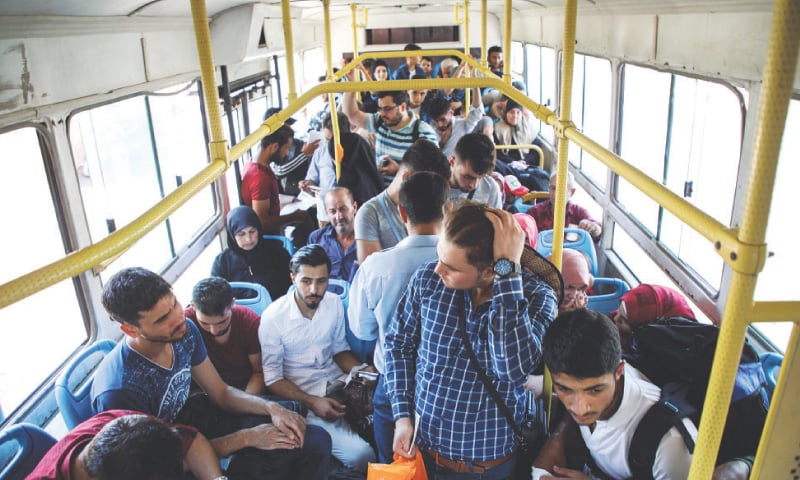“I left Syria seven years ago,” said the 22-year-old. “I don’t know anything about this country.” He was among dozens to queue up one morning last week to register with officials at the Bab al-Hawa crossing — many in complete disbelief. During Hassan’s years of exile, Syria’s landscape changed dramatically.
With no say in the matter, he has just been bussed into the country’s last opposition bastion of Idlib, administered since the start of the year by jihadists.
His home city of Aleppo to the east has been under regime control since 2016, making it near impossible for him to return to the former rebel stronghold.
“My family are in Aleppo but I can’t go there,” he said, looking dejected in a black jacket and baseball cap.
Regime forces have detained young men in areas they have retaken with Russian backing since 2015, and forced others to join President Bashar al-Assad’s army.
Syria’s eight-year conflict has killed more than 370,000 people since it started in 2011, as well as displacing millions at home and abroad.
Some 3.5 million Syrian refugees live in Turkey alone, the United Nations says.
Hassan used to live in Istanbul, where authorities are leading a crackdown on unregistered migrants.
They have arrested 6,000 — including Syrians — over the past two weeks, the interior ministry said last Wednesday.
Critics have raised concern over reports that hundreds of Syrian refugees have been deported, after being forced to sign consent forms in Turkish they do not understand.
Hassan said he tried several times to get a temporary residency permit, but was refused. “In Istanbul they’ve stopped issuing them to Syrians,” he said.
Without the right “temporary protection” permit, he was stopped and arrested.
After more than a week in jail, Hassan was presented with a wad of papers to ink with a finger, which he was told would allow him to stay in Turkey legally. “They lied to us,” he said.
Instead, “we were shocked when the next morning they loaded us on buses and sent us back to Syria.” The crackdown has alarmed human rights campaigners.
“Turkey claims it helps Syrians voluntarily return to their country, but threatening to lock them up until they agree to return, forcing them to sign forms, and dumping them in a war zone is neither voluntary nor legal,” said Gerry Simpson, an associate director at Human Rights Watch.
Bab al-Hawa crossing spokesman Mazen Alloush said Syrians were being deported daily.
Most had tried to illegally cross the border, but others were residents sent home for not having the right papers, he said.
More than 4,400 Syrians have been sent back via Bab al-Hawa this month, he said.
